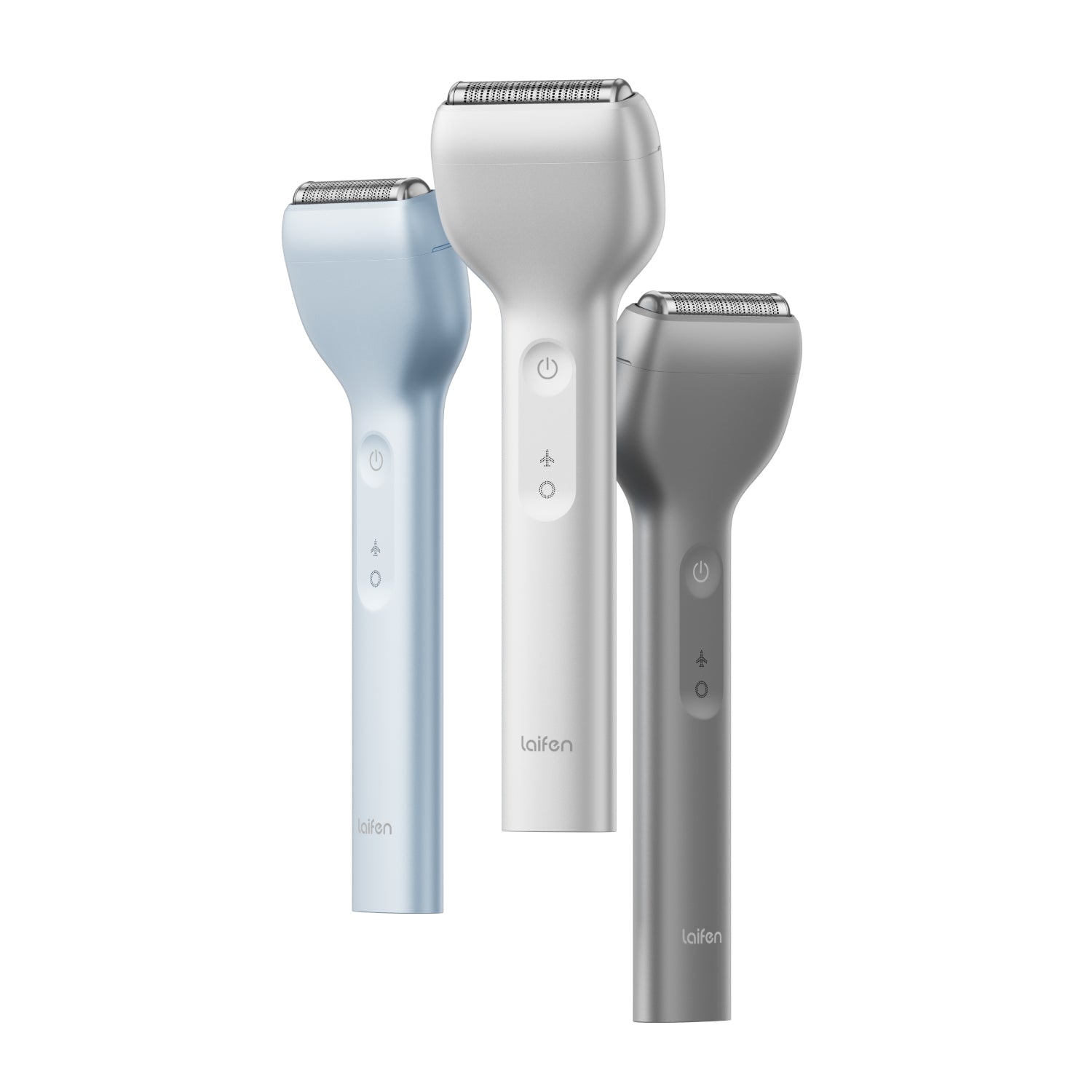
In this article
We know that hair types can be broken down into four main categories. But did you know that in the haircare world, each hair type can be further defined by its exact texture?
That’s where names like 2B and 2C come in. They’re not just code names for hairstylists – they’re identifiers that can help you better understand and care for your hair.
In this guide, we’ll be talking about 2B and 2C hair specifically. Whether you think you fall under one of these subcategories or you’re just curious to learn more about different hair types, read on to discover the fundamentals of type 2B and 2C hair!
What Is Type 2 Hair?

Before we get into subcategories, let’s discuss hair types as a whole.
We know the general descriptors of straight, wavy, curly, and coily. In the haircare world, these textures are given specific categories that range from the least to the most amount of texture:
- Type 1 hair = straight
- Type 2 hair = wavy
- Type 3 hair = curly
- Type 4 hair = coily
Within each category, the hair types are further broken down to reflect exact texture types and their unique characteristics. This is where the additional letters come in, like 2A, 2B, and 2C. It’s a straightforward system, but it’s still helpful to know the exact definition of each subcategory.
2B vs 2C Hair: What’s The Difference?

As we mentioned, the hair grading system always starts with the least amount of texture and works its way up. This means that 2C hair is slightly more wavy than 2B hair. Think of A, B, and C as low level, medium level, and high level.
- 2B Hair: S-Shaped Waves. Tighter than loose, beachy 2A waves but still not curly, 2B hair is typically described as s-shaped waves. It tends to lie flatter at the roots before turning into dense, well-defined waves.
- 2C Hair: Ultra-Defined Waves. 2C waves are a step below curly, and many people might believe these waves are indeed curls. They tend to be more voluminous than 2B waves and can even form ringlets, but they’re not full curls just yet.
Can You Have Both Wave Types?
Not sure which category your hair falls under? It’s very possible that you could have 2B and 2C waves. Whether you notice that your hair texture changes with time (like losing volume closer to wash day) or certain sections of your hair have better defined waves than others, it’s normal for one head of hair to have more than one wave pattern.
The hair type system isn’t meant to be strict or rigid. It exists to help you better understand the nature of your hair texture, so you can create the most efficient haircare routine for your needs.

How To Care For Wavy Type 2 Hair
Whether your hair is 2B, 2C, or a combination of both, there are certain characteristics that all wave types have in common.
Moisture and hydration are crucial, since wavy hair is more prone to dryness and frizz. This is because the more texture hair has, the harder it is for the scalp’s natural oils to slide down the strands. Make sure you’re prioritizing moisture and hydration to keep your waves healthy and nourished.
- Choose shampoos and conditioners that are specially formulated for dry and/or wavy hair – ideally sulphate-free options that won’t strip your hair of its natural oils
- Use lightweight products that won’t weigh your waves down (mousses, gels, foams, serums) and avoid using too many products at once
- Avoid heat styling when possible, and always use heat protectant if you do use heat
- Get regular trims to keep hair healthy and bouncy (pro tip: layers are always a great way to enhance volume)
How To Care For 2B Hair
With 2B hair, your main goal (aside from hydration) will likely be enhancing and balancing volume. 2B waves are well-defined, but they tend to be fuller at the mid-lengths and ends. You’ll need to actively add volume to the roots to avoid the dreaded pyramid shape that’s flat at the top and full at the bottom.

- Look for lightweight yet volume-boosting styling products that add lift without weighing your hair down
- Use a clarifying shampoo a few times a month to remove product build-up that might be weighing your hair down or contributing to frizz
How To Care For 2C Hair
With great texture comes great responsibility. 2C waves are stunning, but they’re also more prone to dryness and frizz. Make sure you’re prioritizing moisture and hydration to keep your waves healthy and nourished.
- Use a hydrating hair mask once a week for extra nourishment and frizz prevention
- Consider investing in a silk pillowcase or sleeping with your hair in a braid or bonnet to reduce overnight friction
Styling Wavy Type 2 Hair
Hair styling is easy when you embrace your natural waves. However, there are certain things you can do to really boost your natural wave pattern, like prepping with the right products and using a high quality blow dryer with a diffuser.
The powerful, concentrated air flows of regular blow dryers can smooth out waves – hence their integral role in a blowout. A diffuser, on the other hand, creates an evenly dispersed airflow that gently wraps around individual strands and enhances natural texture.
Conclusion: 2B vs 2C Hair
Those with naturally wavy hair are blessed with a gorgeous texture, whether they fall into the 2B or 2C subcategory. By prioritizing hydration and moisture, using lightweight products made with waves in mind, and styling with the right blow dryer, you’ll unlock your most beautiful and bouncy waves in no time!













